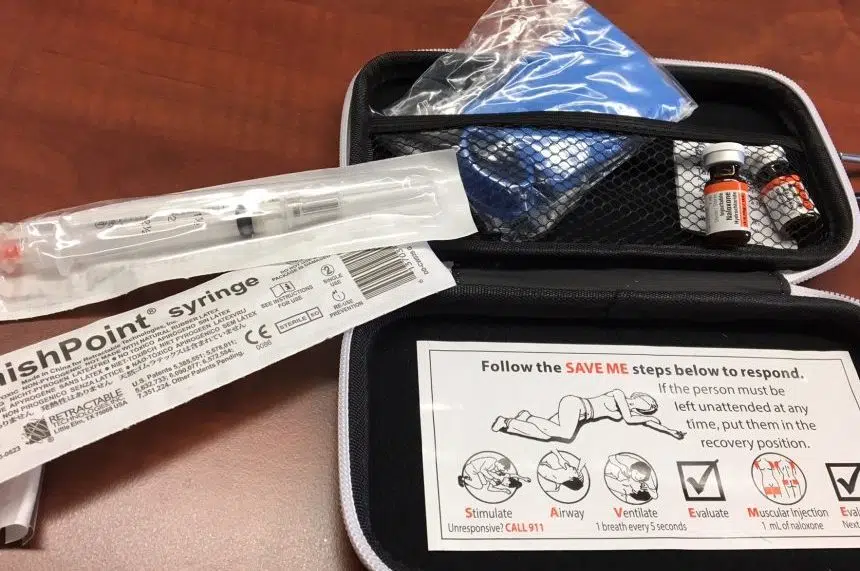A woman on the frontlines of the fight against drug addiction is encouraged to see Regina’s police chief talking about bold new approaches to harm reduction.
Last week Chief Evan Bray raised the idea of potentially using vending machines to dispense safe doses of opioids to addicts. He saw something similar used as a pilot project during a trip to Vancouver. The idea is to wean users off their addictions with a drug treatment plan prescribed by a doctor.
Cora Gajori is the executive director of Carmichael Outreach, an agency that operates a needle exchange program as one of its many services to help vulnerable people.
She said there needs to be more leadership on discussions about harm reduction and she is happy to see the police chief taking an interest.
“It’s not like anybody is saying, ‘let’s put this up overnight,’ but let’s look at these issues a little bit more deeply than we have been in the past,” Gajori said.
“Go beyond that gut reaction of just saying no because that is not working. And let’s see how we can reduce the harm that these drugs have on our community.”
Although Gajori said they don’t see the same number of people addicted to opioids in Regina as you might see in other cities like Vancouver, she is certain the crisis is making its way over from the west. She said there are indications the drugs have arrived and they are aware of several deaths from fentanyl overdoses this year.
She said any type of harm reduction program that could reduce those deaths would be welcome and called the vending machine proposal useful because it would distribute a non-lethal product.
Critics of harm reduction programs often characterize them as the government sanctioning illegal drug use and enabling addiction.
Far from encouraging illegal drug use, Gajori argues harm reduction programs keep people alive and eventually provide a gateway to treatment. She said the point is to get people to a point of stability in their lives so they are able to seek treatment and deal with their illness.
She said the stigma and shame around addiction keeps the problem hidden underground and prevents people from getting help because they don’t want others to know they have a problem.
“If we eradicated the stigma that goes with addiction there would be a lot more people willing to go for help,” Gajori said.
Gajori believes harm reduction saves lives and keeps the community safe.
In her experience, drug users don’t choose to be addicts. She uses the analogy of extreme hunger to describe the physical dependency and withdrawal symptoms they face, which feeds illegal activity.
“You have to eat, you have to use, your body is physically dependent on it. When you don’t have your substance you are willing to do almost anything for it and that drives up the crime rate,” Gajori said.











